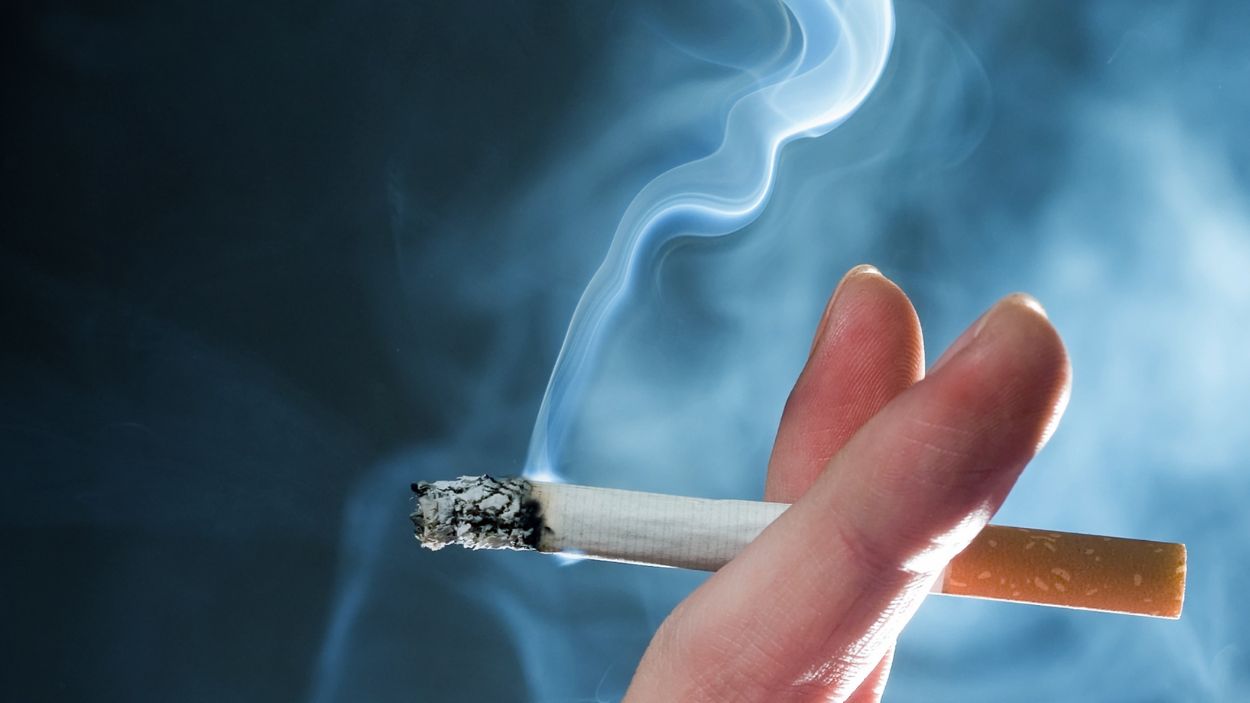“What should we do with these people? Not everyone tolerates nicotine patches, or cytisine, a drug that works very well to fight addiction. For example, it cannot be used in pregnant women and there are psychiatric patients or patients with comorbidities to whom you cannot prescribe pharmacology,” explains the Dr. Fernando Fernandez Bueno, oncological surgeon at the Gómez Ulla Hospital in Madrid. He is one of the experts who participated in the 11th Global Forum on Nicotinethat brought together specialists from around the world in Warsaw (Poland) to discuss alternatives to tobacco and harm reduction.
Nicotine is not the cause of death of patients, it is tobacco smoke, which contains an infinite number of toxic substances
For Fernández Bueno, the first thing to do is quit smoking, but if that doesn't work, specialists should offer their patients other options to minimize the damage. “Nicotine is not the cause of death of patients, it is tobacco smoke, which contains an infinite number of toxic substances. No one dies for nicotinosis”, argues. “The safest thing is always not to smoke, secondly there are nicotine replacement therapies, thirdly there are snus and nicotine patches, and then the electronic cigarette and heated tobacco,” he summarizes.
He confesses his confusion among other specialists and the government itself, who refuse to accept these alternatives, without paying attention to the scientific reports that support them. “I am not a smoker and am not interested,” he emphasizes, pointing to e-cigarettes, heated tobacco and nicotine pouches as therapy. “The goal is to use it as one tool to combat smokers' addictionnot as something playful”
Concerns about the comparison of tobacco alternatives with conventional cigarettes
Participants at the Forum expressed their concerns about the Cancer control plan who studies the European Union and that puts conventional cigarettes, vapers and heated tobacco in the same bag. With these measures, the European Commission aims to reduce tobacco consumption to less than 5% by 2040. “Hard restrictions on new nicotine products could force millions of people to return to the habit of smoking,” they warned.
“Vapers and nicotine pods should be affordable and accessible. The experience of other countries is that these products can dramatically reduce the number of smokers and the risk of cancer,” he said Dr. Colin MendelsohnFounder and President of the Australian Tobacco Harm Reduction Association.
Faced with the limitations, participants at the regulatory table gave countries such as New Zealand, Japan and above all, Sweden. They have all advocated alternatives to conventional tobacco and have succeeded in significantly reducing the number of smokers.
The Swedish case is especially important because it is about to become the largest first smoke-free country according to WHO criteria, which places the number of smokers below 5%. Currently it is 5.6%.
“There the snus and after 50 years of use in, say, more modern conditions, together with the new nicotine pouches, there are already data on its incidence. Sweden is the country with the least cancer in Europe, of all types of cancer. So if nicotine is proven not to be a carcinogen, and this is not what I'm saying, then the WHO and the FDA are saying so. [Administración de Alimentos y Medicamentos de los Estados Unidos] and the EMA [Agencia Europea de Medicamentos]”Why is it banned in Europe?” asks Dr. Fernández Bueno surprised.
After an extensive study of alternatives to conventional tobacco, the FDA has concluded that these products may have a positive effect on public health. While he insists that no tobacco product is safe, he does believe that alternatives such as heated tobacco reduce the risk. On July 7, 2020, they authorized the marketing of the Philip Morris heated tobacco device, expressly stating that “scientific studies have shown that switching completely from conventional cigarettes to this product reduces physical exposure to harmful or potentially significantly reduces harmful chemicals.”
Fernández Bueno also criticized the Comprehensive Tobacco Prevention and Control (PIT) Plan by the government of Pedro Sánchez for failing to take into account the Swedish experience and the British government's anti-smoking policy, which includes electronic cigarettes as a harm reduction tool for people who have failed to quit smoking.

 Dr. Fernando Fernández Bueno, oncological surgeon at Gomez Ulla Hospital in Madrid and spokesperson for the Platform for the Reduction of Smoking Harm, at the 11th Global Forum on Nicotine, held in Warsaw (Poland). (Photo: ElPlural)
Dr. Fernando Fernández Bueno, oncological surgeon at Gomez Ulla Hospital in Madrid and spokesperson for the Platform for the Reduction of Smoking Harm, at the 11th Global Forum on Nicotine, held in Warsaw (Poland). (Photo: ElPlural)
